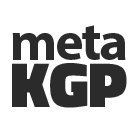CS31007: Computer Organization And Architecture
| CS31007 | |||||||||||||||||||||||||||||
|---|---|---|---|---|---|---|---|---|---|---|---|---|---|---|---|---|---|---|---|---|---|---|---|---|---|---|---|---|---|
| Course name | Computer Organization And Architecture | ||||||||||||||||||||||||||||
| Offered by | Computer Science & Engineering | ||||||||||||||||||||||||||||
| Credits | 4 | ||||||||||||||||||||||||||||
| L-T-P | 3-1-0 | ||||||||||||||||||||||||||||
| Previous Year Grade Distribution | |||||||||||||||||||||||||||||
| |||||||||||||||||||||||||||||
| Semester | Autumn | ||||||||||||||||||||||||||||
Syllabus
Syllabus mentioned in ERP
Basic functional blocks of a computer: CPU, memory, input-output subsystems, control unit. Instruction set architecture of a CPU - registers, instruction execution cycle, RTL interpretation of instructions, addressing modes, instruction set. Case study - instruction sets of some common CPUs.Data representation: signed number repre-sentation, fixed and floating point representations, character representation. Computer arithmetic - integer addition and subtraction, ripple carry adder, carry look-ahead adder, etc. multiplication - shift-and-add, Booth multiplier, carry save multiplier, etc. Division - restoring and non-restoring techniques, floating point arithmetic.CPU control unit design: hardwired and micro-programmed design approaches, Case study - design of a simple hypothetical CPU.Memory system design: semiconductor memory technologies, memory organization.Peripheral devices and their characteristics: Input-output subsystems, I/O transfers program controlled, interrupt driven and DMA, privileged and non-privileged instructions, software interrupts and exceptions. Programs and processes - role of interrupts in process state transitions.Performance enhancement techniques:Pipelining: Basic concepts of pipelining, throughput and speedup, pipeline hazards.Memory organization: Memory interleaving, concept of hierarchical memory organization, cache memory, cache size vs. block size, mapping functions, replacement algorithms, write policies.
Concepts taught in class
Student Opinion
How to Crack the Paper
Classroom resources
Additional Resources
Time Table
| Day | 8:00-8:55 am | 9:00-9:55 am | 10:00-10:55 am | 11:00-11:55 am | 12:00-12:55 pm | 2:00-2:55 pm | 3:00-3:55 pm | 4:00-4:55 pm | 5:00-5:55 pm | |
|---|---|---|---|---|---|---|---|---|---|---|
| Monday | NC232 | |||||||||
| Tuesday | NC232 | NC232 | ||||||||
| Wednesday | ||||||||||
| Thursday | NC232 | |||||||||
| Friday |
